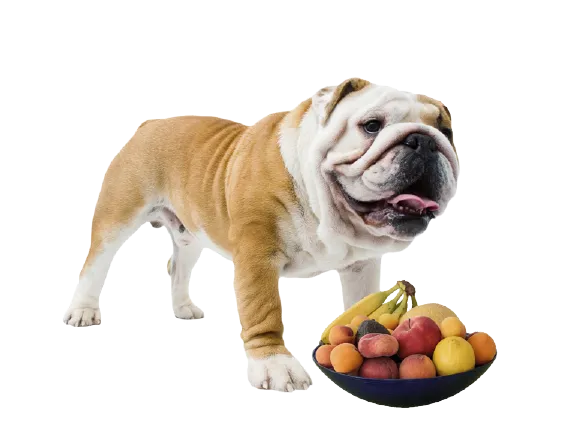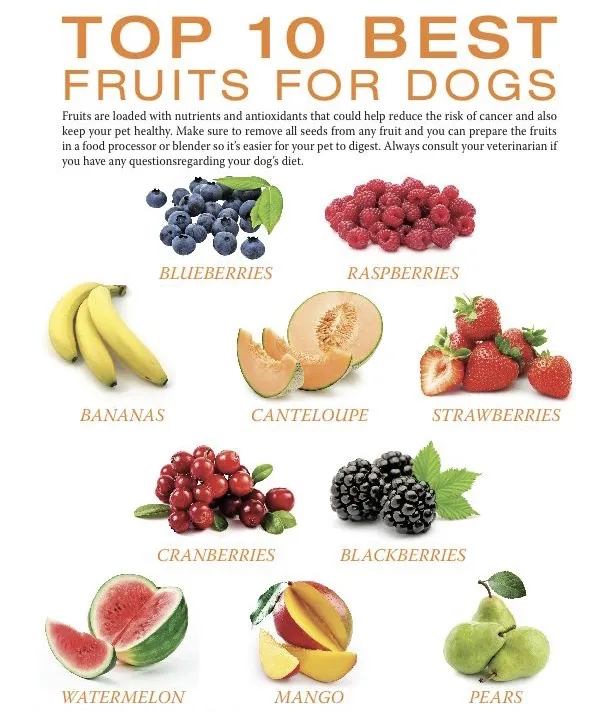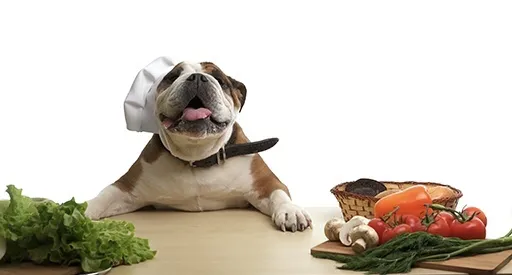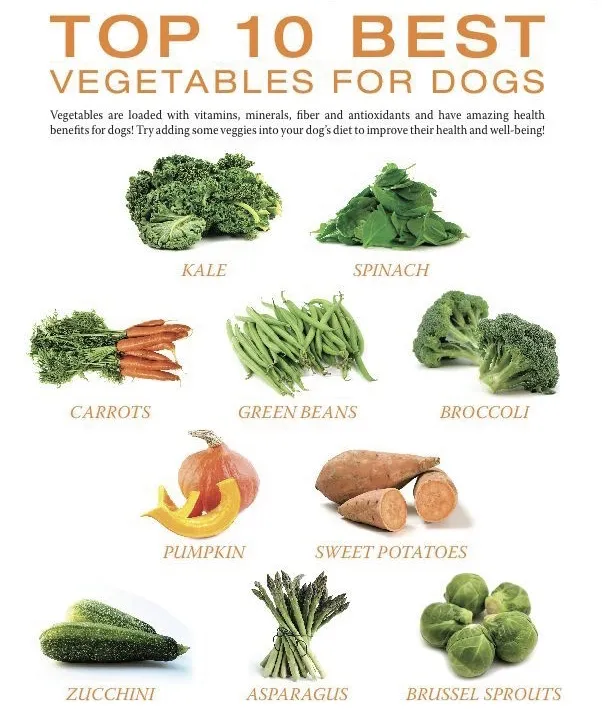English Bulldogs are known for their charming personalities and sturdy build, but their unique physiology also means they have specific dietary needs. Unlike humans, their digestive systems process food differently, making it crucial for owners to understand what foods are safe and beneficial. While dogs are primarily carnivores, a well-balanced omnivorous diet that includes certain fruits and vegetables can provide essential nutrients, boost their immune system, and offer healthier alternatives to high-calorie dog treats. Knowing what vegetables your English Bulldog can eat safely is key to their long-term health and well-being.
Why Include Vegetables in Your English Bulldog’s Diet?
Introducing appropriate vegetables into your English Bulldog’s diet can offer numerous health benefits beyond their regular dog food. These natural additions are packed with vitamins, minerals, antioxidants, and fiber, all vital for maintaining optimal health. For instance, the fiber content aids in digestion and can help regulate bowel movements, which is particularly beneficial for a breed prone to certain digestive sensitivities. Furthermore, vegetables are typically low in calories and fat, making them excellent, guilt-free treats that can assist in weight management, a common concern for English Bulldogs. They provide a satisfying crunch and novel flavors, enriching your dog’s mealtime experience while contributing to their overall vitality.
 English Bulldog looking at a bowl of colorful fruits and vegetables
English Bulldog looking at a bowl of colorful fruits and vegetables
Safe Vegetables English Bulldogs Can Enjoy
Many common vegetables found in your kitchen can be safely shared with your English Bulldog, provided they are prepared correctly and offered in moderation. Here’s a list of some excellent choices and why they’re beneficial:
- Carrots: A fantastic source of Vitamin A, fiber, and antioxidants. Raw carrots can also help clean their teeth. Always cut them into bite-sized pieces to prevent choking.
- Green Beans: Rich in vitamins K, C, and A, as well as fiber and manganese. They are low in calories and can be served raw, steamed, or boiled, without any seasoning.
- Broccoli: Contains vitamins C and K, and fiber. Serve it in very small, cooked florets, as large amounts can cause gas. The stems can be tough and hard to digest.
- Sweet Potatoes: High in dietary fiber, beta-carotene (which converts to Vitamin A), and vitamins B-6 and C. Always cook sweet potatoes thoroughly and serve them plain.
- Pumpkin: Excellent for digestive health due to its high fiber content. Plain, cooked pumpkin (not pumpkin pie filling) can help with both diarrhea and constipation.
- Spinach: Packed with vitamins K, A, C, B, and iron. It’s best served cooked and in moderation due to oxalic acid, which can interfere with calcium absorption if given in large quantities.
- Cucumber: A hydrating, low-calorie snack, rich in vitamins K, C, and B1. It’s great for overweight Bulldogs and can be served raw, sliced into small pieces.
- Peas: A good source of vitamins A and K, and B vitamins. They also contain minerals like iron, zinc, and potassium. Fresh or frozen (thawed) peas are best.
- Cauliflower: Similar to broccoli, offering vitamins C, K, and fiber. Serve small, cooked florets to avoid excessive gas.
- Parsnips: Contain fiber, vitamins C and K, and folic acid. Cook them thoroughly and offer in small pieces.
Remember, when introducing any new vegetable, start with small quantities to monitor for any adverse reactions. [internal_links]
 Close-up of an English Bulldog curious about a plate of sliced apples and carrots
Close-up of an English Bulldog curious about a plate of sliced apples and carrots
Understanding Portion Sizes and Preparation
The way you prepare vegetables for your English Bulldog is just as important as choosing the right ones. Always wash vegetables thoroughly to remove pesticides and dirt. Most vegetables should be cooked plain, without any added salt, butter, oils, or spices, as these can be harmful to dogs. For hard vegetables like carrots or sweet potatoes, cooking them (steaming or boiling) makes them easier to digest and reduces the risk of choking.
Portion control is crucial. Vegetables should only make up a small percentage of your English Bulldog’s overall diet – no more than 10% of their daily caloric intake. They are supplements, not meal replacements. Cut all vegetables into small, manageable pieces to prevent choking, especially for brachycephalic breeds like English Bulldogs. Introducing a new vegetable slowly, one at a time, allows you to observe how your dog reacts and helps identify any potential sensitivities.
Fruits That Are Safe (with caveats)
While our focus is on vegetables, it’s worth noting that some fruits can also be healthy treats, but they often come with more caveats:
- Apples: A great source of vitamins A and C, and fiber. Always remove the seeds and core, as apple seeds contain cyanide.
- Watermelon: Hydrating and rich in vitamins A, B6, and C. Ensure all seeds and the rind are removed, as they can cause digestive upset or blockages.
- Peaches and Apricots: Contain vitamins A and C, and fiber. Crucially, remove the pits as they contain cyanide and can also be a choking hazard.
- Oranges: High in vitamin C. While safe, they are also high in sugar and acids, so offer only small, peeled, seedless segments and in moderation.
- Lemons/Limes: While not toxic, their high acidity usually makes them unpalatable for dogs, and they offer little nutritional benefit.
 English Bulldog enjoying a small piece of fresh fruit in a garden setting
English Bulldog enjoying a small piece of fresh fruit in a garden setting
Vegetables and Fruits to Absolutely Avoid for English Bulldogs
Unfortunately, not all healthy foods for humans are safe for dogs. Some can be toxic and dangerous for English Bulldogs, leading to severe health problems or even death. It’s imperative to know which ones to keep away:
- Avocados: Contain Persin, a fungicidal toxin that can cause vomiting and diarrhea in dogs.
- Cherries: The pits, stems, and leaves contain cyanide, which is highly poisonous.
- Grapes and Raisins: Highly toxic and can cause acute kidney failure, even in small amounts. The exact toxic compound is unknown, but the danger is well-established.
- Mushrooms: Some varieties are highly poisonous and can cause liver or kidney failure, neurological damage, or death. Unless you are certain it’s a safe culinary mushroom, avoid all types.
- Onions, Garlic, Leeks, Chives: All members of the Allium family, they contain compounds that can damage a dog’s red blood cells, leading to a condition called hemolytic anemia. Symptoms include weakness, vomiting, and breathing difficulties.
- Rhubarb: Contains oxalic acid, which can cause tremors, drooling, kidney failure, and other serious issues.
- Unripe/Raw Potatoes: Contain solanine, which is toxic to dogs. Cooked potatoes are generally safe in moderation, but raw potatoes are not.
- Corn on the Cob: The corn itself isn’t harmful, but the cob is a serious choking hazard and can cause intestinal blockage.
- Tomato Leaves and Stems: While ripe tomatoes are generally fine in small amounts, the green parts (leaves and stems) contain solanine, which is toxic.
If your English Bulldog consumes any of these harmful foods, contact your veterinarian immediately.
 Adorable English Bulldog puppy sniffing a healthy green vegetable snack
Adorable English Bulldog puppy sniffing a healthy green vegetable snack
When to Consult Your Veterinarian
While adding vegetables to your English Bulldog’s diet can be beneficial, it’s always wise to consult with your veterinarian before making significant changes to their feeding regimen. This is especially true if your dog has any pre-existing health conditions, allergies, or if you’re unsure about appropriate portion sizes or preparation methods. Your vet can provide tailored advice based on your English Bulldog’s individual needs, age, weight, and activity level. If your dog exhibits any signs of discomfort, such as vomiting, diarrhea, lethargy, or loss of appetite after consuming a new food, seek veterinary attention without delay.
Conclusion
Incorporating safe, properly prepared vegetables into your English Bulldog’s diet can significantly enhance their nutritional intake and overall health. From the gut-friendly fiber in pumpkin to the vitamins in carrots and green beans, these natural additions offer a wealth of benefits. However, responsible feeding requires careful selection, appropriate portion control, and a clear understanding of which foods are toxic. Always prioritize your English Bulldog’s safety by avoiding dangerous ingredients and consulting with your veterinarian for personalized dietary guidance. By making informed choices, you can ensure your beloved companion enjoys a healthy, vibrant life, full of delicious and safe vegetable treats.
References
- American Society for the Prevention of Cruelty to Animals (ASPCA). (n.d.). People Foods to Avoid Feeding Your Pets. Retrieved from https://www.aspca.org/pet-care/animal-poison-control/people-foods-avoid-feeding-your-pets
- The Kennel Club. (n.d.). Feeding your dog. Retrieved from https://www.thekennelclub.org.uk/health-and-dog-care/dog-care/caring-for-your-dog/feeding-your-dog/
- Veterinary Medical Center. (n.d.). Healthy Snacks for Dogs. Retrieved from https://vetmed.illinois.edu/pet_health/healthy-snacks-for-dogs/
